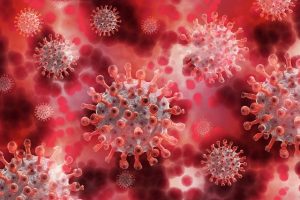South Korea: 210 severely ill patients with COVID-19 are ordered to leave from ICU
- Mifepristone: A Safe and Effective Abortion Option Amidst Controversy
- Asbestos Detected in Buildings Damaged in Ukraine: Analyzed by Japanese Company
- New Ocrevus Subcutaneous Injection Therapy Shows Promising Results in Multiple Sclerosis Treatmen
- Dutch Man Infected with COVID-19 for 613 Days Dies: Accumulating Over 50 Virus Mutations
- Engineered Soybeans with Pig Protein: A Promising Alternative or Pandora’s Dish?
- Severe Fever with Thrombocytopenia Syndrome (SFTS): A Tick-Borne Threat with High Mortality
South Korea: 210 severely ill patients with COVID-19 are ordered to leave from ICU
- Red Yeast Rice Scare Grips Japan: Over 114 Hospitalized and 5 Deaths
- Long COVID Brain Fog: Blood-Brain Barrier Damage and Persistent Inflammation
- FDA has mandated a top-level black box warning for all marketed CAR-T therapies
- Can people with high blood pressure eat peanuts?
- What is the difference between dopamine and dobutamine?
- How long can the patient live after heart stent surgery?
South Korea: 210 severely ill patients with COVID-19 are ordered to leave from ICU.
Worried! The beds are in a hurry. In this country, severely ill patients with the COVID-19 are ordered to “vacate their beds”! 22 people have died…
The epidemic situation in South Korea is still severe. On December 25, the number of critically ill patients with COVID-19 pneumonia in South Korea has reached 1,105, which is the highest value again.
In order to increase the turnover rate of critically ill patients, the Korean epidemic prevention department recently issued an administrative order to some patients who have been hospitalized in the COVID-19 intensive care unit for a long time, requesting that they be released from isolation and transferred to the general intensive care unit.
Once the administrative order was issued, it caused dissatisfaction among a large number of patients’ families.
The epidemic situation in South Korea is still severe. Although the number of newly diagnosed cases in a single day in South Korea this week has shown a downward trend compared with the previous week, the number of critically ill patients and deaths are still hovering at a high level.

Recently, the South Korean government issued a notice to 210 long-term hospitalized patients who have been hospitalized in the COVID -19 intensive care unit for more than 20 days and clinically determined that there is almost no transmission of the new coronavirus infection .
This is the first administrative order issued since South Korea announced on the 17th of this month to adjust the treatment measures for severely ill patients with COVID-19 disease.
However, just yesterday, the South Korean epidemic prevention department notified that as of now, 22 severely ill patients with COVID-19 disease have died of critical illness before being transferred to the ward .

Many family members of the patients expressed difficulty accepting this order, believing that it was a compulsory method adopted by the government eager to vacate hospital beds and did not have a specific grasp of the actual condition of the patients.
A family member said that his father had been intubated for two weeks due to COVID-19, and he had to leave the COVID-19 intensive care unit the next day after receiving an administrative order in accordance with the regulations.
If he is critically ill and cannot be transferred, he will have to bear the high amount. Medical expenses .
In this regard, the South Korean government stated that the decision was made to ensure the maximum number of beds.
It was a sheer helpless move, emphasizing that treatment will continue to be provided after the transfer of the ward.
South Korean epidemic prevention experts said that it cannot be ruled out that some patients will not get better within 20 days.
If this goes on, it is likely to bring chaos to the medical system.
At present, the utilization rate of COVID-19 intensive care beds in South Korea’s metropolitan area exceeds 82% .
In order to relieve the pressure of shortage of beds, some small and medium-sized hospitals in South Korea are transferring ordinary patients, and all the beds are used as COVID-19 intensive care beds, and will be used for patients who need dialysis.
Special COVID-19 beds are set up for pregnant women and newborns.
The South Korean epidemic prevention department said yesterday that it has successfully developed a nucleic acid detection reagent that can quickly detect Omicron strain within 3-4 hours, and it is the world’s first nucleic acid detection method that can identify five COVID-19 variants.
This reagent will be available in It was officially put into use in South Korea on the 30th.
South Korea: 22 died after 200 COVID-19 patients were asked to leave from ICU.
(source:internet, reference only)
Disclaimer of medicaltrend.org
Important Note: The information provided is for informational purposes only and should not be considered as medical advice.



